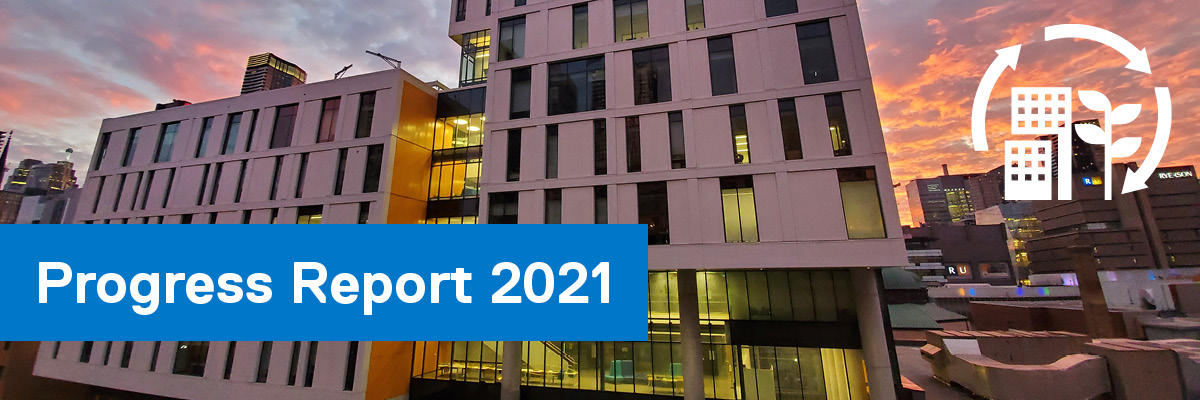Procurement

Procurement at TMU continues to be an area of ongoing attention relative to the economic, environmental and social impacts of purchasing decisions. Procurement policies are being re-examined in light of the positive effect that we can have, both locally and through our supply chain from the procurement choices we make.
Key Highlights

In 2019, TMU participated along with the University of Toronto in a MARS innovation project entitled Buying With Impact, a guide to help post-secondary institutions in the Greater Toronto Area procure more goods and services from social enterprises.

In 2020, 100% of TMU's expenditures on electronic products (including leased equipment) were certified EPEAT (Electronic Product Environmental Assessment Tool). EPEAT is a third party, independent label for sustainable electronic equipment.

In 2020, 90% of all janitorial cleaning and paper products were environmentally certified.

In 2020, TMU incorporated Life Cycle Cost Analysis Requirements into our RFPs and Scope of Work for capital and deferred maintenance projects with potential energy impacts. The inclusion places greater emphasis on prioritizing efficiency and quantifying the 20 year impacts on greenhouse gas (GHG), energy costs and maintenance costs.

Since 2020, TMU has been developing a Social Procurement Program and corresponding policies to ensure social considerations are placed alongside economic value in purchasing decisions. This initiative is part of a partnership between Financial Services and the Office of the Vice-President, Equity and Community Inclusion (OVPECI).
